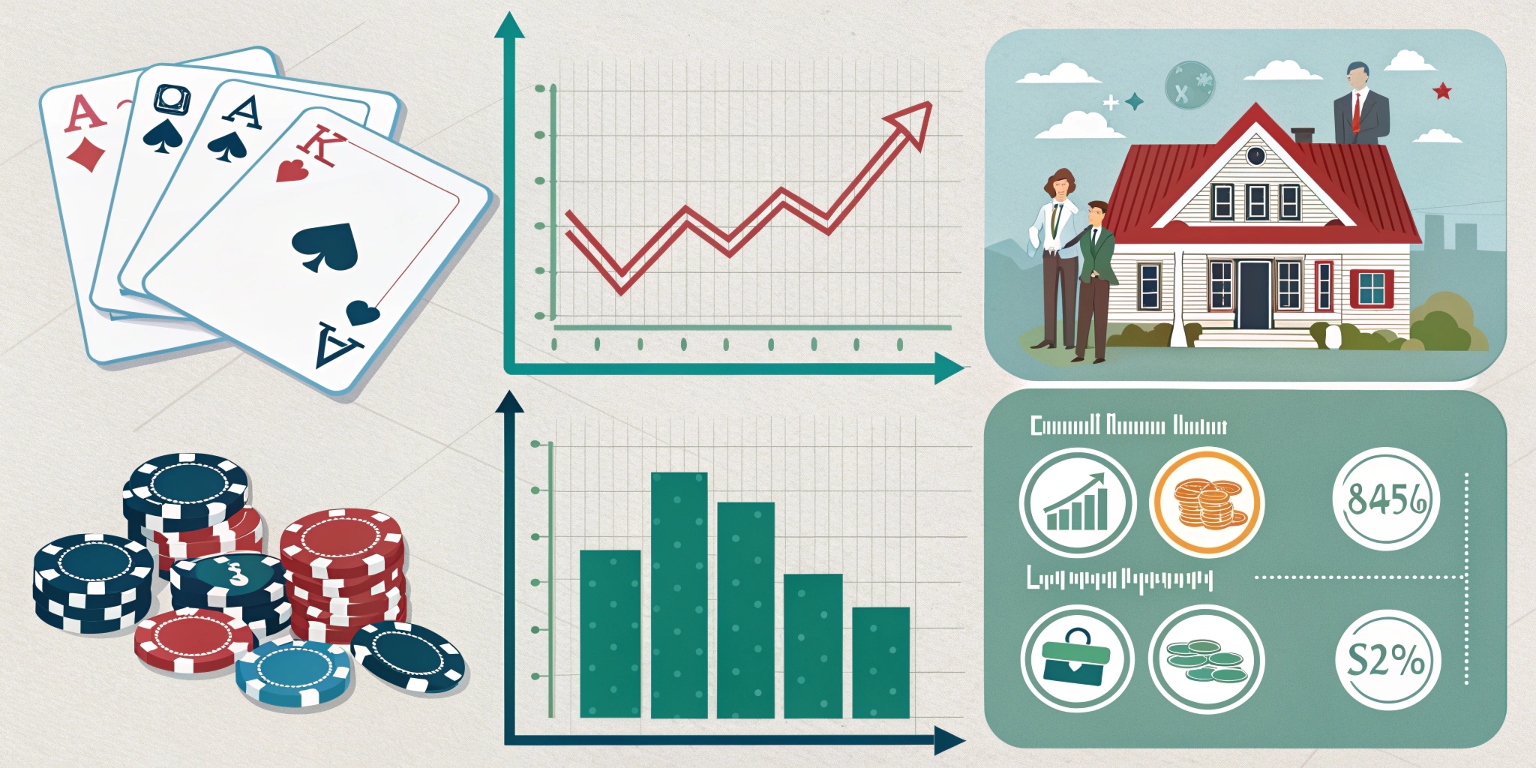Applying for a mortgage is one of the biggest financial commitments most people ever make. But did you know that your gambling habits could potentially impact your mortgage application? In New Zealand and elsewhere, lenders look at more than just your income—they carefully examine your spending behavior, too. And yes, that includes gambling activity.
Let’s explore how gambling is viewed by lenders, when it becomes a red flag, and what you can do to avoid any negative consequences when applying for a home loan.
How Lenders Assess Mortgage Applications
When assessing a mortgage application, banks and lenders in New Zealand focus on several key areas:
- Income stability – Regular, verifiable income from employment or self-employment
- Credit score – A healthy credit history without defaults or excessive debt
- Debt-to-income ratio – How much of your income goes toward existing debts
- Spending patterns – Including discretionary spending, subscriptions, and gambling
It’s this last point that often surprises people. Regular gambling—even if it’s with small stakes—can raise questions.
When Gambling Becomes a Problem for Mortgage Approval
To be clear, occasional gambling isn’t an automatic dealbreaker. Many New Zealanders place the occasional bet on the rugby or spin the reels on a Saturday night. However, problems arise when gambling appears:
- Frequent or regular on bank statements
- Large in amount or inconsistent with income level
- Affecting savings or increasing overdraft use
- Indicative of financial instability or risk-taking
In such cases, a lender may interpret the behavior as a sign of financial mismanagement—or worse, problem gambling. This could lead to loan rejection or a smaller borrowing amount.
For a deeper look at this topic, the theedinburghreporter.co.uk page covers how gambling can influence mortgage decisions, particularly in markets like the UK, which operate similarly to New Zealand. It highlights real-world examples and expert insights into how lenders scrutinize bank statements for gambling-related red flags.
What You Can Do If You Gamble and Want a Mortgage
If you enjoy gambling but want to apply for a mortgage soon, here are a few steps to consider:
- Pause all gambling activity at least 3–6 months before applying
- Close online gambling accounts that you no longer use
- Show consistent savings behavior in the lead-up to your application
- Keep your bank statements clean of any unnecessary or risky spending
- Be honest with your broker or lender about your financial habits
These actions help paint a picture of someone in control of their finances—not someone who might be at risk.
Do Real Estate Agents Care?
While mortgage lenders are the ones who directly assess your financials, some real estate agents are becoming increasingly knowledgeable about lending criteria. According to the lettingagenttoday.co.uk website, agents today often work closely with mortgage advisors to ensure their clients are financially ready. So even though your gambling habits might not concern the agent directly, it can impact your buying journey through mortgage delays or reduced approval chances.
Final Thoughts
In our opinion, gambling only becomes a problem for mortgage applications when it affects your financial stability. If you’re responsible with your money and gambling doesn’t interfere with your savings or debts, most lenders won’t hold it against you. But it’s smart to err on the side of caution.




